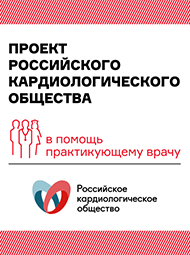Dehydration at time of stroke linked to worse outcomes
NASHVILLE, Tenn. — Adults who are dehydrated at the time of stroke are at risk for worsening severity of their condition, independent of infarct size, compared with people who are not dehydrated, according to data presented at the International Stroke Conference.
Researchers analyzed 168 patients admitted with ischemic stroke to the stroke center at Johns Hopkins Hospital who were less than 12 hours from last known normal function. All were able to undergo MRI and were free from renal failure.
Mona N. Bahouth, MD, a stroke fellow at Johns Hopkins, and colleagues assessed dehydration via two surrogate markers: blood urea nitrogen (BUN)-to-creatinine ratio greater than 15 and urine-specific gravity greater than 1.01. All participants were assessed for BUN-to-creatinine ratio and 124 were assessed for urine-specific gravity.
“There is a physiologic problem that goes on when a patient is dehydrated,” Bahouth said during a press conference. “The blood gets sludgy and puts shear stress on the vessel wall, and that changes the whole dynamic of how the blood vessel functions and, therefore, causes changes in how the blood clots vs. when the blood is not putting shear stress on the vessel wall. In the end, that causes platelets to clump together and decreased end-organ function at a time when you really want all of your organs functioning well.”
The researchers determined stroke severity via the NIH Stroke Scale score after clinical examination and measured lesion volume by diffusion-weighted MRI. The primary outcome was change in NIH Stroke Scale score from admission to discharge.
Forty-four percent of patients were dehydrated by both markers and 55% were dehydrated by elevated BUN-to-creatinine ratio at the time of admission. There were no differences in demographics between those who were dehydrated and those who were not. The groups were also similar at baseline in lesion volume (dehydration, 12 cc; no dehydration, 16 cc; P = .48) and NIH Stroke Scale score (dehydration, 6.7; no dehydration, 7.3; P = .63).
Forty-two percent of patients in the dehydrated group were in the worst quartile for short-term NIH Stroke Scale score change compared with 17% of those in the hydrated group (P = .02).
After adjustment for age, initial NIH Stroke Scale score, lesion volume and admission glucose, dehydration was an independent predictor of worse change in NIH Stroke Scale score (OR = 4.34; 95% CI, 1.75-10.76).
“We need to do everything we can to help the patient recover to their best potential,” Bahouth said. “Volume resuscitation could be one of those things, but it will need further study.” – by Erik Swain
Reference:
Bahouth M, et al. Abstract T MP86. Presented at: International Stroke Conference; Feb. 11-13, 2015; Nashville, Tenn.
Disclosure: Bahouth reports no relevant financial disclosures.
Source: www.healio.com


.jpg)



